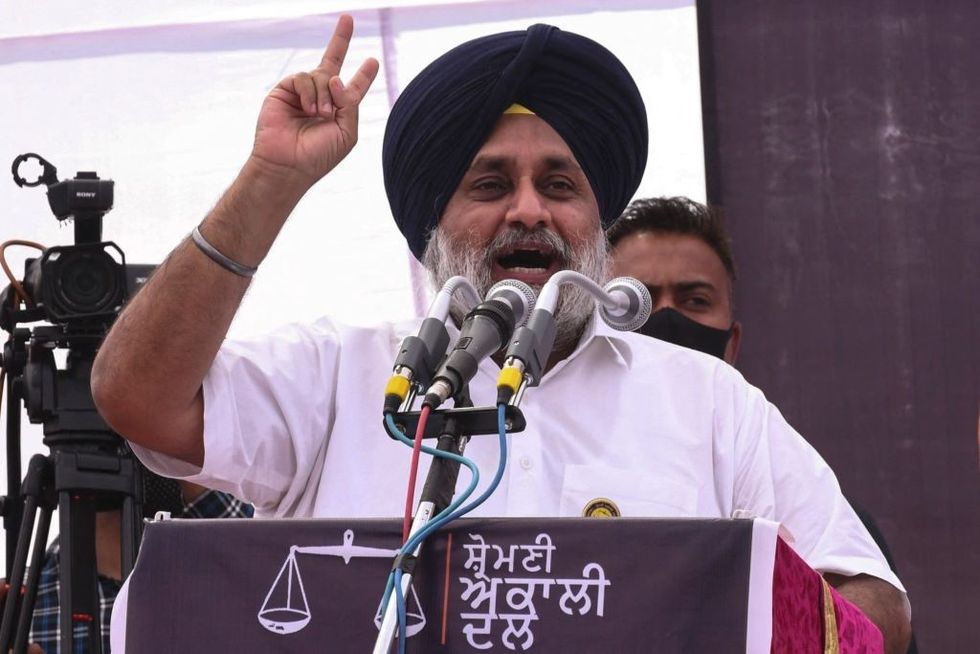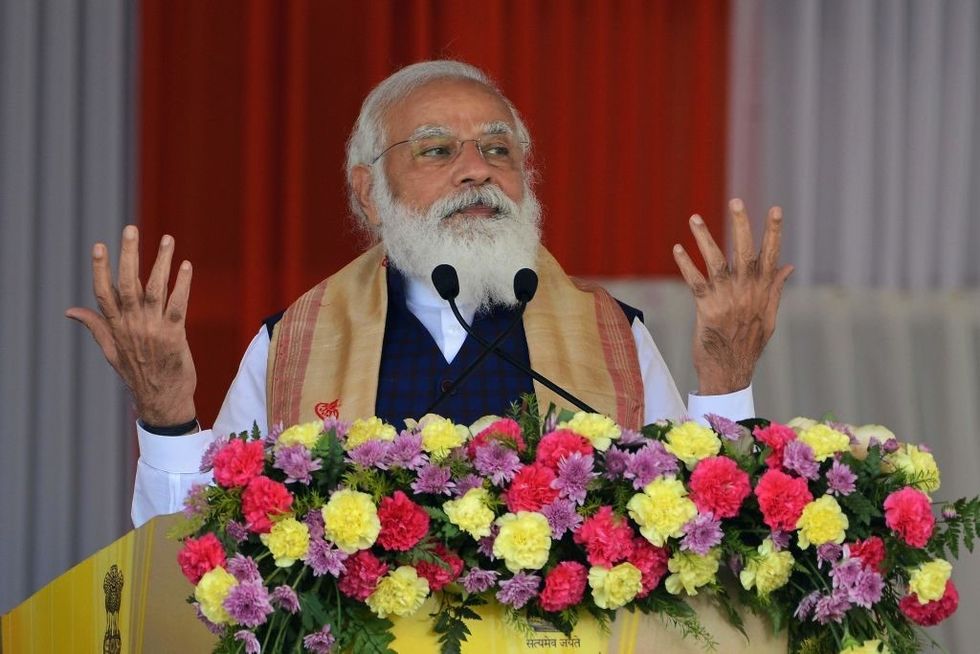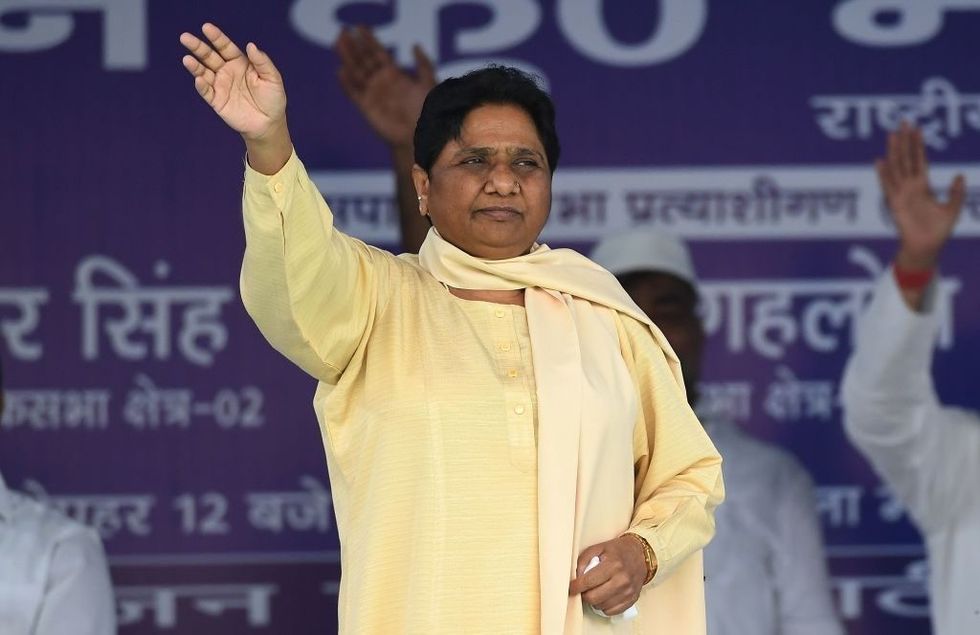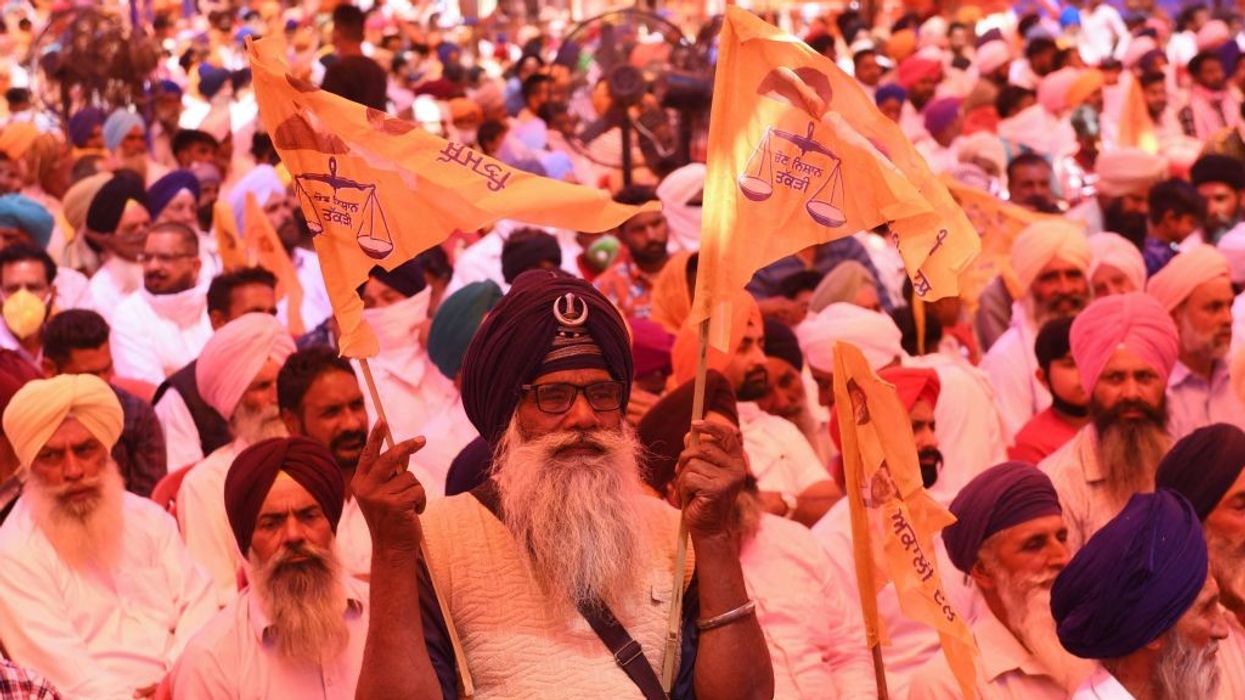THE Shiromani Akali Dal (SAD) has recently joined hands with the Bahujan Samaj Party (BSP) for the 2022 Punjab Assembly elections and both parties described the move as “historic”. This is not the first time that the two outfits have come together to fight an election. In the 1996 Lok Sabha election, too, the SAD and BSP, which is a major player in the state of Uttar Pradesh, contested in alliance and did well by bagging 11 out of 13 seats in the northern state.
In the 2017 Assembly election in Punjab, however, neither of the two parties did well. The SAD lost power after the National Democratic Alliance comprising it and the Bharatiya Janata Party (BJP) failed to cross the halfway line in the 117-seat state legislature. It was an end of a 10-year government led by the SAD and the party finished third after the Congress and Aam Aadmi Party (AAP). The BSP, on the other hand, failed to win a single seat despite contesting in 111 seats (vote share of 1.5 percent). Even in the 2012 Assembly election, the BSP drew a blank with only 4.3 percent vote share. In fact, the last time the BSP won an Assembly seat in Punjab, from where its founder Kanshi Ram belongs, was in 1997 when it won a single seat with a vote share of 7.5 percent.
Why did the SAD then choose BSP as an alliance partner to take on strong opponents like the Congress and AAP? Eastern Eye spoke with SAD’s Rajya Sabha Member of Parliament Naresh Gujral, who is also the son of late Indian prime minister Inder Kumar Gujral, over the alliance and other aspects related to the Punjab election.
EE: Why did the SAD make this alliance with BSP?
Gujral: Basically, this alliance is a social coalition more than a political coalition (Dalits, who are the BSP's major vote base, constitute around 32 percent of Punjab's population). Former chief minister Parkash Singh Badal had started various plans for the welfare of the state’s Dalits much earlier, in fact his plans were among the first in the country. Be it the ‘Shagun’ scheme or scholarships for SCs/STs or Atta-Dal scheme, he had started it all. Many of such schemes were later adopted by the Centre. The SAD’s focus has always been centered on the poor. There were big-time power cuts earlier but things have turned around in the 10 years of our rule. The road connectivity has improved, infrastructure has been served with priority, more jobs have been created. What I mean to say is that the SAD’s has been a pro-poor government and one that has worked on development. So, the alliance with the BSP helps its focus in that way.

EE: But the BSP has not been a big force in Punjab elections if we see the past elections?
Gujral: When these types of mergers happen, you don’t see how the other party has done in past elections. This can be more be called a force multiplier. In 1996, we fought the general elections together from Punjab and even though the vote share was not too big we managed to win 11 out of 13 seats in the Parliament from the state. So we are certain that it will again pay off this time.
EE: Can this alliance succeed in beating bigger opponents like the Congress and AAP, which has also emerged a competitive player in the state?
Gujral: Our goal remains firm and it is about defeating the Congress and AAP.
EE: What about the BJP?
Gujral: The BJP is not a force anymore in Punjab. They have lost the people’s trust.

EE: Even the Modi factor won’t help them?
Gujral: No. The Modi factor had never worked in Punjab. Even in the past, Arun Jaitley lost from this state (2014 Lok Sabha election).
EE: Do you think the anti-incumbency factor can work against the Congress this time?
Gujral: It has run the government shoddily over the last five years. The ‘Har Ghar Naukri’ (Job for every household) scheme has not delivered. The farmers are disillusioned with this government. There are corruption charges against this government as well.
EE: Coming back to the alliance with the BSP, why didn’t you make a similar alliance in the last 25 years despite the 1996 success?
Gujral: The SAD never leaves its ally’s hand. The SAD did not make any alliance with the BSP after 1996 wince it was a part if the NDA (they walked out last September protesting three farm bills that it felt were against Punjab’s interest). We were in the NDA because of Mr Atal Behari Vajpayee and Lal Krishna Advani. The NDA was completely different then.

EE: How do you see the SAD doing in the 2024 general elections?
Gujral: All regional parties need to come together to stop the BJP. If this government is allowed to have a longer run, this country could be fragmented. Divisions along religion and caste lines in its times have been unprecedented.
EE: But is there a face that the anti-BJP alliance can project in the 2024 polls?
Gujral: Who would have thought in 2005 that Modi would become the prime minister one day. We have always heard questions like ‘After Nehru, who?’ or ‘After Indira, who?’ but we saw how India got a leader like PV Narasimha Rao who emerged as a dark horse after the assassination of Rajiv Gandhi. Somebody will emerge. There is no vacuum in politics.




